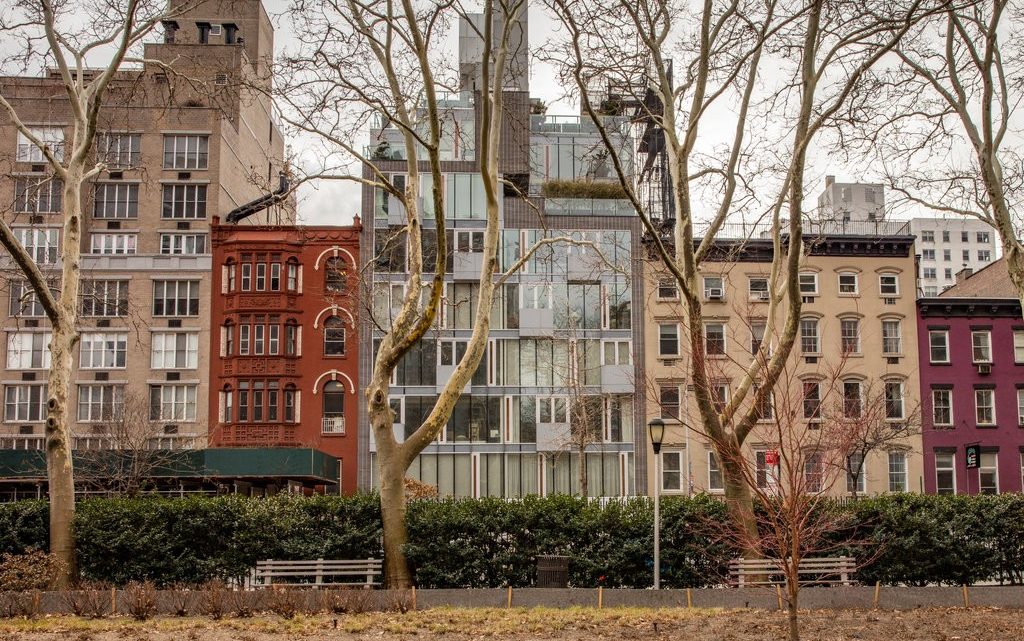Airbnb Drives Up Rent Costs in Manhattan and Brooklyn, Report Says
Airbnb’s growing influence caused rents to increase significantly in tourist areas and gentrifying neighborhoods in Manhattan and Brooklyn, where the majority of the company’s rentals are concentrated, according to a report released on Thursday by the city comptroller’s office.
In Manhattan’s Hell’s Kitchen and Chelsea neighborhoods and the Midtown Business District, which accounted for about 11 percent of all Airbnb listings in New York City in 2016, average monthly rents increased by $398 between 2009 and 2016, of which $86, or 21.6 percent, was a result of Airbnb’s presence, the report said. In Greenpoint and Williamsburg in Brooklyn, the study said, rents went up 18.6 percent in those years because of Airbnb listings.
Airbnb makes it easy to rent apartments to tourists, taking units off the market for full-time residents, the report said.
“For years, New Yorkers have felt the burden of rents that go nowhere but up, and Airbnb is one reason why,” the city comptroller, Scott M. Stringer, said in an interview. “It’s just simply supply and demand. Fewer apartments to rent means higher prices, and that’s the Airbnb effect.”
The report said that Airbnb’s influence cost New Yorkers $616 million in additional rent in 2016 as a result of price pressures.
Airbnb has more than 50,000 apartment listings in New York City, the company’s largest market in the United States. The comptroller’s report shed light on the clash of the so-called sharing economy with city neighborhoods struggling to preserve their stock of affordable housing and rein in skyrocketing rents, though the report also found that the online rental site had a negligible effect on most neighborhoods outside of Manhattan and Brooklyn, where listings are sparse.
The study drew on data scraped from Airbnb listings and used regression analysis to compare what rents would have been across 55 neighborhoods if thousands of units had not been listed on the home-sharing website. Still, the report has limitations: An apartment listed on Airbnb does not always translate into a unit lost in the long-term rental market, because apartments may be rented for a short amount of time a year.
Airbnb officials said the report confused causation with correlation by blaming the company for higher rents that could have been raised by other factors, like rezoning. However, the comptroller’s study included variables like household income, population, and employment rates.
“Comptroller Stringer’s report severely misrepresents the impact of our platform on housing and is full of elementary methodological mistakes,” said Andrew Kalloch, a policy manager at Airbnb. “New Yorkers deserve better from their chief financial officer.”
Mr. Stringer said in response, “The methodology is sound.”
Mr. Kalloch said Airbnb’s effect on rents was insignificant because listings represent less than 1 percent of apartments in the city. But he acknowledged that some neighborhoods have a significantly higher share of Airbnb rentals. He also said that using 2009 as a starting point distorts the findings because rents in New York tanked during the Great Recession that year.
Most New Yorkers, Mr. Kalloch said, use Airbnb as a source of extra income to make ends meet and that entire apartments are rented for a median of 60 nights a year. But Airbnb has long been scrutinized by officials because some landlords use Airbnb to effectively run illegal hotels in residential buildings.
And some New York tenants use the platform to rent spare bedrooms to travelers year-round, often in violation of housing rules or without the permission of their landlords.
One Airbnb host in Chelsea, a 45-year-old singer and songwriter from California, has rented a room in a two-bedroom apartment for more than three years to tourists who stay an average of four to five nights. The singer spoke on the condition of anonymity out of fear of being evicted.
The singer charges $40 to $110 per night during the summer, which helps cover the $3,050 monthly rent.
“It’s a great way to make money,” the singer said. “I get to keep my apartment clean for guests and meet new people in a world where everyone is disconnected.”
However, many tenant advocacy groups say that Airbnb increasingly displaces low-income New Yorkers and welcomes unruly neighbors into their buildings.
“It really isn’t a good idea to turn our residential housing into illegal hotels so that a $30 billion company can get their I.P.O.,” said Tom Cayler, a member of the West Side Neighborhood Alliance, a coalition of tenants who advocate for the preservation of affordable housing.
As in other areas around the world, Airbnb has had a contentious history in New York.
In 2014, about three-quarters of all Airbnb rentals in the city were found to be illegal, according to a report released that year by the New York attorney general, Eric T. Schneiderman.
Under state law, it is illegal in most buildings to rent an apartment for fewer than 30 days unless the owner is present when a guest is renting. But some tenants and landlords skirt the law and rent out entire apartments for shorter amounts of time without being present, the report said.
The attorney general’s report said Airbnb was dominated by operators with multiple listings, finding that 6 percent of the hosts made 37 percent of the revenue — or $168 million. The company said it had already expelled thousands of commercial operators from its platform.
In 2016, Gov. Andrew M. Cuomo signed a bill allowing hosts to be fined up to $7,500 for listing apartments that violate housing regulations.
Despite the ongoing feud with New York officials, Mr. Kalloch said his company welcomed certain regulations to rid its platform of abusers.
“Along with proactively removing bad actors from our platform,” he said, “Airbnb is supporting legislation in Albany that would provide for rigorous enforcement against illegal hotel operators, among other things.”
[livemarket market_name="KONK Life LiveMarket" limit=3 category=“” show_signup=0 show_more=0]

No Comment